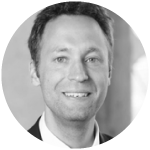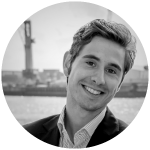In this webinar, Andre Franke and Tim Steiert describe a scalable targeted enrichment protocol for fragment sizes of >7 kb. For demonstration purposes, they utilized a custom blood group panel of challenging loci. The test results demonstrate a highly multiplexed enrichment pool of 16 samples with this new protocol. Platform-agnostic solutions for NGS.

Professor, University of Kiel
Prof. Andre Franke (1978) is director of the Institute of Clinical Molecular Biology (IKMB) and leads the high-throughput laboratory facilities (biobank, sequencing and genotyping, and microbiome labs) as well as the bioinformatics unit of the Centre for Molecular Life Sciences (ZMB) at Kiel University.

PhD Student, University of Kiel
Tim Steiert is currently a PhD candidate at the Institute of Clinical Molecular Biology in Kiel. His research focuses on the optimization and development of techniques in the fields of second- and third-generation sequencing. Tim seeks to translate effective research approaches and develop affordable applications of sequencing in precision medicine for the benefit of patients.